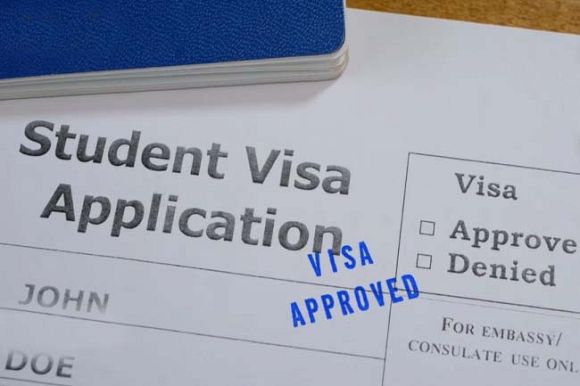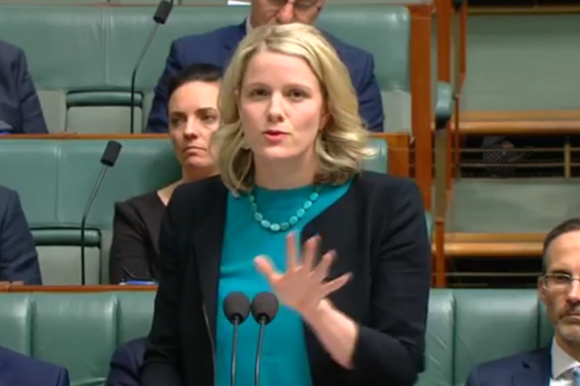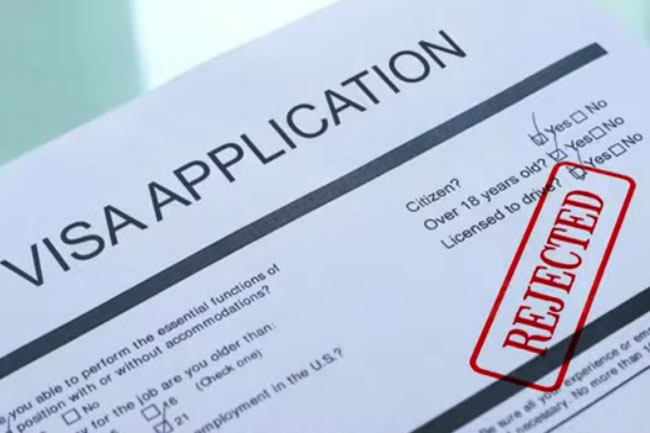In response to increasing student visa fraud, the Government is rolling out measures to stamp it out, writes Dr Abul Rizvi.
*Also listen to the audio version of this article on Spotify HERE.
LAST WEEK, the Government announced a range of measures to address rorting in the student visa system. This was not surprising given reports on student visa rorting, including in the unreleased Nixon Review, had become deafening.
Last year, the Department of Home Affairs (DHA) made public warnings about the level of fraud it was seeing in student visa applications. As a result, there was a major increase in offshore student visa refusal rates, particularly for students from the sub-continent enrolled in the vocational education and training (VET) sector.
In some instances, offshore VET sector refusal rates increased from around 20% to over 90%. As a result, offshore student applications for the VET sector virtually dried up for sub-continent nationals.
But there was no such increase in refusal rates for students applying onshore for VET sector courses after receiving an offshore student visa either for a combination of courses or specifically for a higher education course. Onshore student visa grants to the VET sector boomed in 22-23 to almost 100,000 with approval rates of over 95%.
The number of VET sector providers registered to provide courses to overseas students also boomed with the number of initial (that is, new) registrations the Australian Skills Quality Agency (ASQA) approved increasing from 58 in 2020-21 to 84 in 2021-22 and 112 in 2022-23.

The overall number of VET providers registered by ASQA to provide courses to overseas students increased from 738 at the end of September 2020 to 932 at the end of June 2023.
Not surprisingly, the higher education lobby expressed anger at the rate at which the higher education sector is losing students (and student revenue) to the VET sector. This is in addition to students acquiring a fee-free COVID-19 visa that provides full work rights rather than keep studying. This visa stream remains open to new applications despite international borders having been re-opened in early 2022.
Julie Hare in the Australian Financial Review reports of students continuing to come to Australia to work rather than study. This is despite the unlimited work rights provided to students by former Immigration Minister Alex Hawke having again been restricted from 1 July 2023.
The Agereported of "ghost colleges" where students are rarely seen. It would appear the re-introduction of restricted student work rights has not yet taken effect.
The report on visa integrity by former Victorian Police Commissioner Christine Nixon highlighted the need to deal with unscrupulous education providers and agents. While this report has not been officially released, the Government has allocated an additional $50 million over four years to DHA for immigration compliance activity, partly to correct the major decline in such activity over the previous six or seven years.
So what did the Government announce last week?
Firstly, the Government announced the ability for overseas students to be enrolled concurrently with more than one provider will be closed with immediate effect. Use of the concurrent enrolment facility had boomed in the first half of 2023 to 17,000 compared to around 10,500 in the period 2019 to 2022.
Misuse of this had enabled students to undermine the provision that students cannot change provider, usually from a higher quality provider to a cheap, low-quality provider, within six months of arrival. Note that this provision used to be 12 months but pressure from some parts of industry led to it being reduced to six months on the basis that it provides "greater flexibility" to students who change their mind about where they wish to study while the concurrent enrolment facility was developed to help "reduce red tape".
Secondly, the amount of savings a student must show before they get an offshore student visa will be increased by 17% to $24,505 accounting for indexation since this was last increased in 2019. This is fine but checking the level of savings a student genuinely has is enormously resource-intensive at a time when key overseas posts are drowning in work.
The change will make little difference unless overseas posts are better resourced noting that the Government says it will also 'apply additional scrutiny to high-risk cohorts and ask for additional documents to prevent fraud in applications'. There is nothing in the announcement about additional resources to fund this additional scrutiny.
Thirdly, the Government will:
'Consider using its powers under section 97 of the Education Services for Overseas Students Act (ESOS Act) to issue suspension certificates to high-risk education providers. A suspension certificate means providers would not be able to recruit international students'.
This or a similar power has existed since 2001 but has never been used as the Government has preferred to rely on quality education regulators.
Is the threat of using this power a reflection of government frustration with the two regulators failing to act sufficiently robustly?
That frustration may have been behind the letter written by the Chair of the Tertiary Education Quality and Standards Agency (TESQA), Professor Peter Coaldrake, to universities warning them of 'students transferring from their provider shortly after arrival in Australia, unethical recruitment behaviours by some education agents'. He said a number of higher education providers are under investigation for non-compliance but that no specific action has yet been taken.
Disciplinary action by the VET regulator, ASQA, had fallen away quite significantly, particularly in 2021-22, despite the extensive allegations of rorting by VET providers. ASQA has suggested the decline in disciplinary action is due to COVID-19 but that cannot be the whole explanation given the comparatively high level of disciplinary action in 2020-21 (that is, the peak of COVID-19).

Brendan O’Connor, the Minister for Skills and Training, has announced a range of additional powers for ASQA. These include higher and broader "fit and proper persons" standards. O’Connor says this will ‘eliminate the minority of non-genuine operators’. His reference to a "minority" contrasts with the suggestion from Minister Clare O’Neil of around 200 operators with high fraud and rejection rates.
There would be great merit in Minister O’Neil publishing the data on operators with high fraud and rejection rates as a means of naming and shaming these operators as it is clear Minister O’Connor has a very different view of the size of the problem.
The additional factors ASQA will be able to consider in its "fit and proper" standards include:
- allowing ASQA to consider instances where an offence was proven but no conviction was recorded;
- allowing ASQA to consider a person’s management history and past breaches of registration;
- expanding the types of evidence that can be considered that show false and misleading conduct by providers; and
- allowing ASQA to consider whether the provider has been found not to be fit and proper under an expanded range of federal and state laws, not merely in the VET sector.
Time will tell whether these changes will enable ASQA to become a more robust regulator.
Minister O’Neil has indicated further action may be taken when there is a formal and more detailed response to both the Nixon Report as well as the wider Parkinson Report on the migration system. That will be welcome but the Government needs to start acting in these areas much more quickly and better resourcing its actions.
The delay in acting only means that the problems get much bigger such as the very large number of people now on the COVID-19 visa stream (over 120,000, a large portion of whom are former students) as well as the growing number of students (around 600,000) and temporary graduates (around 200,000) who will be in "immigration limbo" as many will have studied the wrong courses (or very low-quality courses that employers don’t respect). There are also not enough places in the permanent migration program to accommodate all who will be seeking permanent residence.
*This article is also available on audio here:
Dr Abul Rizvi is an Independent Australia columnist and a former Deputy Secretary of the Department of Immigration. You can follow Abul on Twitter @RizviAbul.
Related Articles
- Nixon report challenges Home Affairs over visa system exploitation
- 'COVID visa stream' has overstayed its welcome
- Does ‘catch-up’ explain record net migration in 2022?
- Albanese Government cracks down on migrant worker exploitation
- Housing woes to worsen with upsurge in migration
 This work is licensed under a Creative Commons Attribution-NonCommercial-NoDerivs 3.0 Australia License
This work is licensed under a Creative Commons Attribution-NonCommercial-NoDerivs 3.0 Australia License
Support independent journalism Subscribe to IA.















